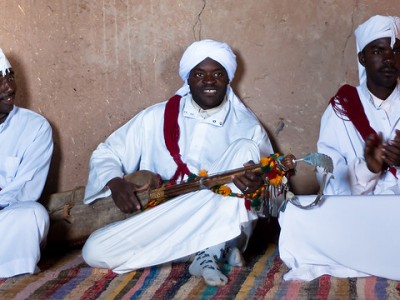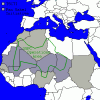Stories about Ethnicity & Race from August, 2010
Egypt: Obssessed with Celebrities’ Religion
In Egypt, some people decide to like or hate celebrities based on their religion. Lebanese actress Nour, Egyptian actress Basma, radio host Osama Mounir, and many others have all been subjected to this scrutiny. Why are people so obsessed with the beliefs of celebrities?
Armenia-Azerbaijan: Overcoming negative stereotypes in the South Caucasus
This guest post for the World Bank's World Development Report 2011 is the first in a series on "New Media and Conflict" which explores the affect of new communication technologies on issues of conflict and development.
Pakistan: Stereotyping Hindus
The blogger at The life and times of two Indians in Pakistan blog writes about some incidents of stereotyping of Pakistani Hindus as either Indian or Kaafir (infidel) and she was overwhelmed when some Pakistanis protested this treatment.
Indians In Singapore
Abhijit at Blowing In The Wind informs that the proportion of Indians in Singapore has increased to 353,000, which is about 9.2 per cent of the population.
Brazil: Last day on protest by tribe trying to prove its existence
Jesse Lerner-Kinglake reports on the last day of the protest by the Awá, a Brazilian indigenous people, to try to prove its existence. “If anything, this week’s protest should prove to the developers and politicians alike that the Awá do indeed exist.” The blogger writes about the crisis facing this...
Morocco: Race and Racism
In Morocco, the discussion of race and racism is sometimes taboo. In this post, Jillian C. York sums up the thoughts of several bloggers, in reaction to a post on racism against Black people in the country.
Bangladesh: Bengali And Bangladeshi Nationalism
Dr Afsar Ali at Unheard Voices comments that “there is no contradiction between the Bengali and Bangladeshi nationalism as opposed to the pundits and the politicians wanted us to believe in.”
Sri Lanka: Western Media Bias Against Muslims
Dee at Ranting In Colombo comments on the bias of western media in portraying the Arab and Muslim world: “a head shawl doesn't mean you're conservative! There is a person underneath.”
Mauritania, Algeria: Analyses of the Fallout from the Raid to Free Germaneau
On July 25, A French-Mauritanian raid on Al Qaeda Islamic Maghreb (AQIM) inside Malian territory failed to free French aid worker Michel Germaneau who was killed by his detainers. Bloggers from the region are weary of the underlying trends in the region: complex diplomatic relations and radicalization of the youth.
Jamaica: Would Garvey Be Blogging?
Marcus Garvey, blogger? Geoffrey Philp posts a poll.
Caribbean: On Freedom
Yesterday, August 1, marked the 172nd commemoration of Emancipation Day in many English-speaking Caribbean territories, when African slaves were freed from their British colonists. Today is a public holiday in many countries throughout the region and a few bloggers are taking the opportunity to reflect on what the occasion means to these developing islands.
Armenia-Azerbaijan: Peace on Facebook
Global Voices co-founder Ethan Zuckerman comments on the potential for social networking site Facebook to serve as a tool for cross-border communication, especially in the area of international conflict. Although skeptical in general, Zuckerman says that it might be showing some albeit limited potential in the area of Armenia-Azerbaijan relations.
USA: Debating Essence Magazine Hire of Ellianna Placas, First White Director
On Jul 19, Essence, America’s premiere black women’s magazine and a media institution, announced that it has named Ellianna Placas as its new Fashion Director. Placas is a renown fashion editor, she is also the first white woman to be hired at this position. Bloggers debate the social and cultural implications of the hire.





